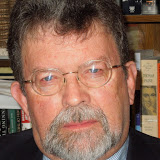
Hoover Institution Hack from Ann Coulter's School of History Slimes "Left" for 9/11 |
|
Consider that D'Souza expects Americans to believe that "the Clinton and Carter administrations made the U.S. look like a weak, attractive target for terrorists." Well, perhaps some Americans will - especially if they've never read a newspaper or history book devoted to the issue, if they've just returned from a thirty-year visit to Mars, or if they're the incompetents at the LA Times who published D'Souza's Op-Ed.
You see, D'Souza gets it wrong virtually every possible way it can be gotten wrong. Thus, when he blames President Carter for pulling "the rug out from under [Iran's] shah," thereby allowing the Ayatollah Khomeini and his forces to seize power, you will not find D'Souza acknowledging the conclusion reached, for example, by Kenneth Pollock: "The shah brought the Iranian Revolution on himself. At the strategic level, his many mistaken policies created tremendous animosity against the regime across the breadth of Iranian society." [Pollock, The Persian Puzzle, p. 137] According to Pollock, America's real "policy failure in Iran was to tie ourselves so tightly to the shah's regime." [Ibid]
D'Souza also conveniently ignores the role that the Eisenhower administration played in engineering the coup d'etat in 1953 that overthrew Iran's democratically elected government of Prime Minister Muhammad Mussadiq. So traumatic was the coup and the subsequent twenty-five years of dictatorial rule under the shah, "that when the shah finally departed in 1979, many Iranians feared a repetition of 1953, which was one of the motives for the student seizure of the U.S. embassy." [Ibid, p. 68]
D'Souza omits mentioning the 1953 coup, because he already has dismissed "blowback" and "American colonialism" as factors that might explain why the Ayatollah Khomeini called America the "Great Satan." High school students should already know these facts, but not if the ideologue D'Souza is telling the story.
Equally erroneous and dishonest is D'Souza's claim that, thanks to Carter's role in producing Khomeini's regime of Islamic radicalism, the way was "paved" for Osama bin Laden and 9/11. Once again, D'Souza conveniently overlooks the fact that it was bin Laden's success (and the success of Islamic forces) in Afghanistan against the Soviet military - thanks to weapons supplied by the Reagan administration! - that inspired him to believe that the sole remaining imperialist power, the United States, could be defeated as well.
Finally, although D'Souza is correct to criticize the Clinton administration for its failure to kill bin Laden when it had the opportunity, he fails to note that President Clinton, unlike the Bush administration prior to 9/11, was almost obsessed with nailing bin Laden, notwithstanding the failures of his administration. The person to read on this subject is Richard A. Clarke (Against All Enemies), who served in both administrations -- not biased D'Souza.
Moreover, it's a matter of record that in January 2001, Clinton's CIA director, George Tenet, briefed President-elect Bush about the threats facing America and told him that the number one threat was Osama bin Laden and his al Qaeda terrorists. Yet, notwithstanding Tenet's warning, the Bush administration spent the nine months between its inauguration and the 9/11 attacks obsessively making plans to build a national missile defense (which still doesn't work) and to remove Saddam Hussein from power. Simply recall that the 9/11 attacks forced National Security Adviser, Condoleezza Rice, to cancel her speech addressing the need to build a national missile defense.
Bush's people blew off the warnings about al Qaeda; so much so, that when the National Security Council (NSC) principals finally met to address al Qaeda, the attack was just one week away. Keep in mind that numerous meetings of the NSC principals were held before 9/11 and many of them focused on Iraq.
Finally, simply recall Bush's words to Bob Woodward after 9/11: "The was a significant difference in my attitude after September 11. I was not on point, but I knew he [bin Laden] was a menace, and I knew he was a problem...But I didn't feel that sense of urgency, and my blood was not nearly as boiling." [Bush at War, p. 39] But, of course! Not when you are obsessed with missile defense and Iraq.
So much then for Dinesh D'Souza's biased and infantile assertions about "How the Left Led Us Into 9/11."
| Rate It | View Ratings |

OpEdNews depends upon can't survive without your help.
If you value this article and the work of OpEdNews, please either Donate or Purchase a premium membership.
If you've enjoyed this, sign up for our daily or weekly newsletter to get lots of great progressive content.
Most Popular Articles by this Author: (View All Most Popular Articles by this Author)
The Grand Jury Report: Part two of "What did Joe Paterno know and when did he know it?"
Three False Assertions by the Grand Jury turned the Press and Public against Joe Paterno and Penn State
New, Previously Suppressed Grand Jury Testimony and Joe Paterno: Part four of "What did Joe Paterno know and when...
What did Joe Paterno know and when did he know it? Part One
Incompetent Journalists at the Philadelphia Inquirer Slandered Joe Paterno
Hitting Penn State's Board of Trustees Where it Hurts
To View Comments or Join the Conversation:



